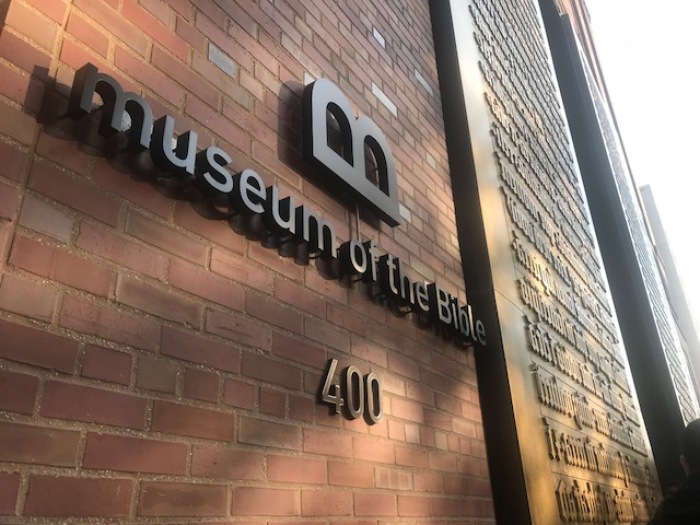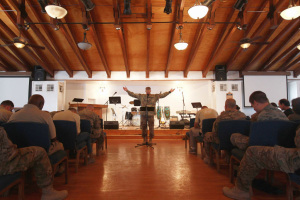Museum of the Bible returns some 5,000 disputed biblical objects to Egypt

Weeks after the Museum of the Bible in Washington transferred control of 5,000 disputed manuscripts and bits of papyrus to the U.S. government, officials have repatriated the artifacts to Egypt, from where the items were thought to have been illegally shipped during the Arab Spring.
The handover of the artifacts, which included manuscript fragments, funeral masks, parts of coffins, and the heads of statues, was preceded by extensive discussions with Egyptian officials that started in late 2017, MOTB Chairman of the Board Steve Green said in a statement last week.
Green, president of Hobby Lobby, an arts and crafts retail chain, explained that while the talks with Egyptian officials had been “cordial and promising, we were not able to finalize the desired agreements nor resolve the logistics of shipping the items to Iraq and Egypt,” after which MOTB sought the help of U.S. government officials to assist with the delivery of the items.
On Jan. 7, “we transferred control of the fine art storage facility that housed the 5,000 Egyptian items to the U.S. government as part of a voluntary administrative process,” he continued. “We understand the U.S. government has now delivered the papyri to Egyptian officials.”
In 2018, the museum hired the Advisory Team of Art Fraud Insights for a thorough physical and chemical investigation of the 16 Dead Sea Scroll fragments housed at the museum, its most prized possessions. Team members unanimously concluded that none of those textual fragments were authentic.
The team found that while the fragments were purchased from different sources, they were “remarkably similar in that they were all heavily coated with a shiny amber material that was identified by FTIR analysis as a protein, most likely animal skin glue.” This was likely done to reinforce the fractured and torn substrates before writing.
Last April, an academic from the U.K.’s Oxford University was arrested as part of an investigation into the theft and unauthorized sale of the ancient Bible fragments to Hobby Lobby Stores.
The accused, identified as Dr. Dirk Obbink, a 63-year-old professor of papyrology at Oxford, allegedly stole the fragments belonging to the Oxyrhynchus collection in the Sackler Library. The Oxyrhynchus Papyri is a group of manuscripts that were discovered during the late 19th and early 20th centuries at a spot where ancient inhabitants of the city of Oxyrhynchus dumped their garbage of over 1,000 years.
The Egypt Exploration Society, a British nonprofit excavation organization that works in Egypt and Sudan and which owns the collection, issued a statement the previous year accusing Obbink of selling fragments of the Oxyrhynchus Papyri, after which the university suspended the professor.
Last October, MOTB also replaced from display a microfilm Bible thought to have been one of about 100 tiny Bibles brought to space by Apollo 14 astronaut Edgard Mitchell in 1971 after its authenticity was called into question by an expert, The Associated Press reported at the time.
In July 2017, Hobby Lobby agreed to pay $3 million and forfeit thousands of biblical cuneiform tablets and clay bullae to settle a civil complaint the U.S. government filed against the company, alleging that the Christian-owned arts-and-crafts retailer acquired artifacts originating in modern-day Iraq that were unlawfully smuggled from the United Arab Emirates and Israel as “ceramic tiles” or “clay tiles (sample).”
“We should have exercised more oversight and carefully questioned how the acquisitions were handled,” Green said in a statement on the settlement. “Hobby Lobby has cooperated with the government throughout its investigation, and with the announcement of today’s settlement agreement, is pleased the matter has been resolved.”





























